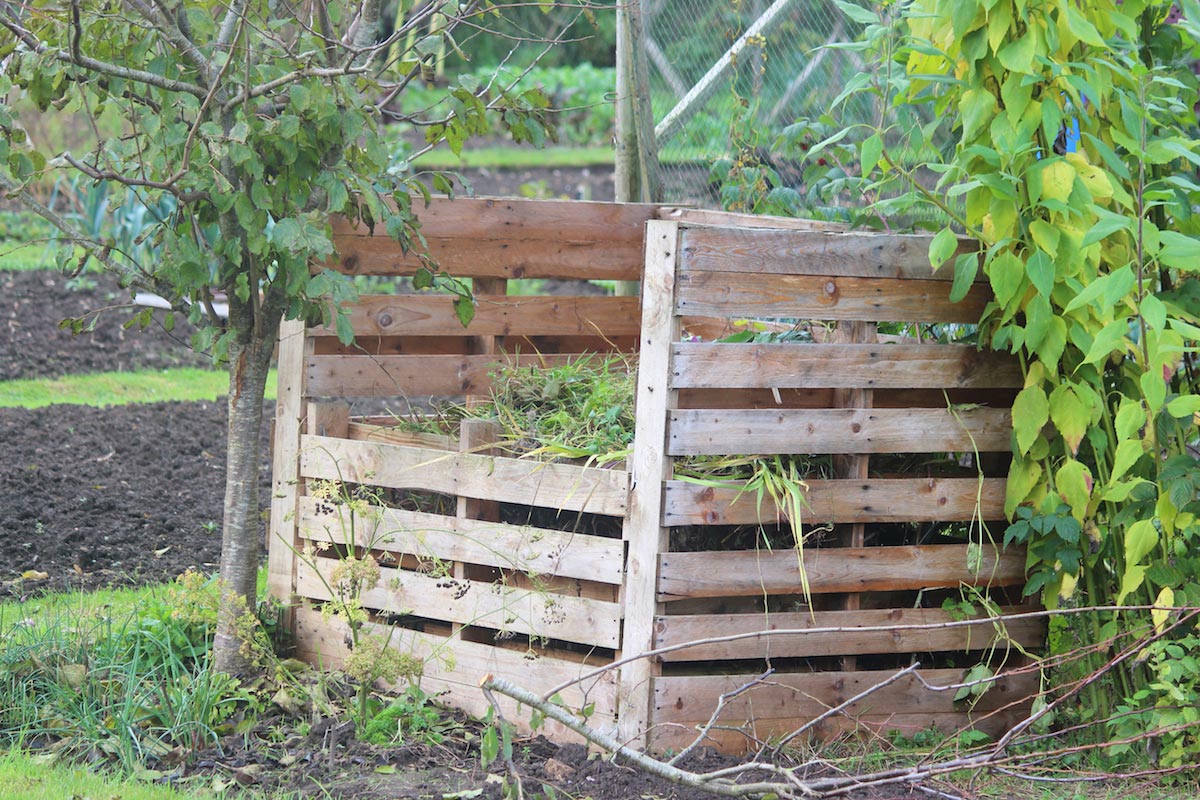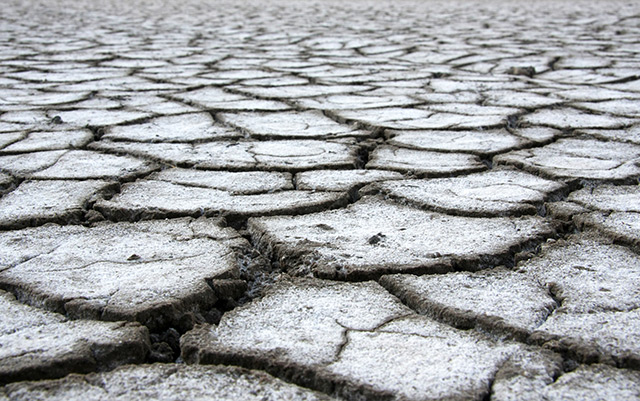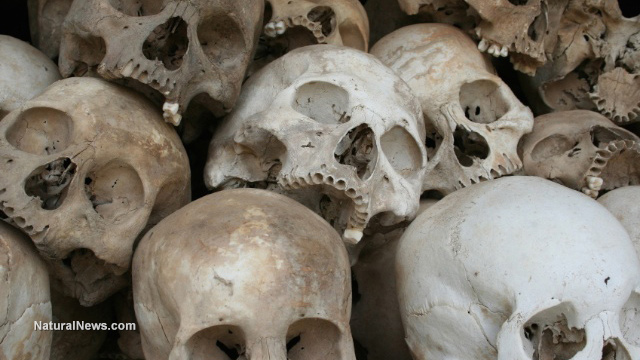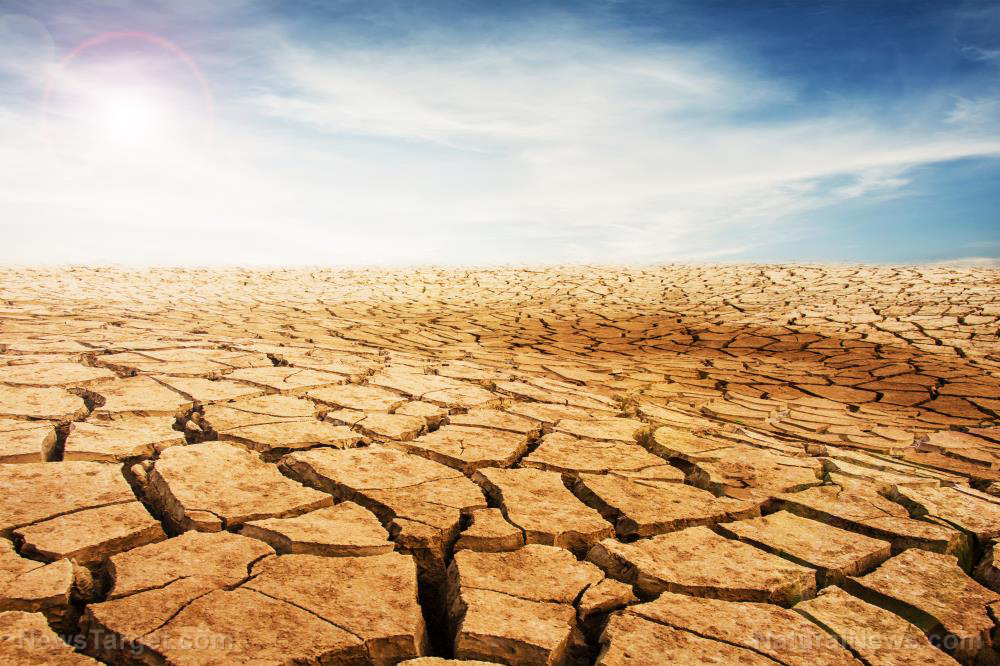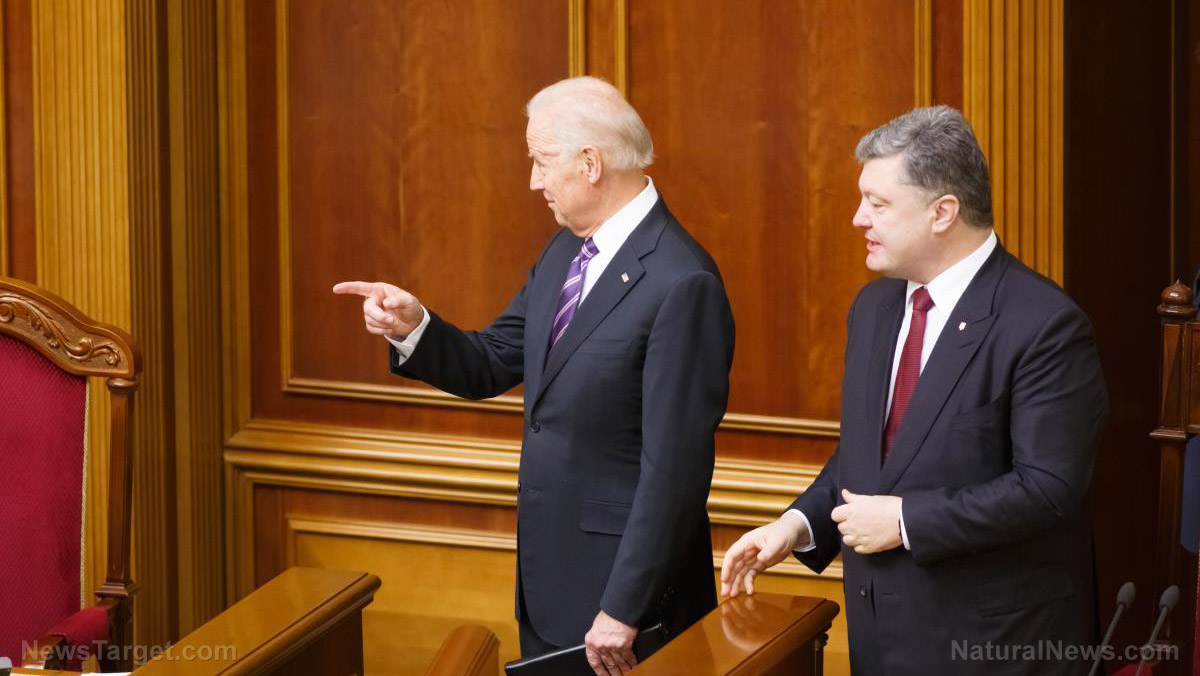ANALYSIS: Europe to become “ECONOMIC WASTELAND” as industry dies, banks fail and food production plunges
09/26/2022 / By Mike Adams

Europe’s economy, currencies and industries are in free fall, plunging toward “economic wasteland” status that’s less than a year away if natural gas supplies from Russia aren’t quickly restored. That’s the conclusion of numerous experts who have spoken to Natural News over the last two weeks, including war correspondent Michael Yon, Finnish economist Tuomas Malinen, global agricultural trends researcher David Dubyne, and Italian-American author Leo Zagami.
The situation is so dire that Germany chemical giant BASF — formerly part of the Nazi-run IG Farben chemical conglomerate that carried out war crimes against humanity — is now threatening to shut down operations for industrial plants that have run continuously since the 1960s. As explained by author Philip Oltermann in a UK Guardian article entitled, “How gas rationing at Germany’s BASF plant could plunge Europe into crisis,” BASF is close to shutting down its massive chemical facilities in Germany due to a lack of natural gas. But shutting down production might be permanent, since no one knows if the plants can ever resume operations after a shutdown, since the very act of shutting the system down may break it.
BASF is critical to the world’s supply chain for fertilizer, petroleum refining, medicines, plastics, consumer products, industrial materials and more. If BASF were to go down, Western Europe’s industrial economy would rapidly collapse into ruin, and the global supply chain crisis would dramatically worsen far beyond anything we saw due to covid lockdowns.
To understand all this, first consider this March, 2022 Reuters article, “BASF says it would stop output if gas supplies fell to half its needs.” That article explains:
Germany’s BASF (BASFn.DE) said on Wednesday it would have to stop production if natural gas supplies fell to less than half its needs, as the world’s largest chemicals group warned of the damage to its operations from Europe’s power crunch.
The article reveals that BASF not only uses natural gas as its energy source for chemical manufacturing, but that the hydrocarbons in natural gas are the feed stock for critical chemical production such as ammonia (NH3) which must have hydrogen (H) from hydrocarbon molecules. You can’t simply replace natural gas with electricity, since electricity contains no hydrogen. Thus, wind and solar power can never replace natural gas in industry and manufacturing, including for fertilizer production, plastics and more. As Reuters explains:
In Europe, BASF uses around 60% of the gas it buys to generate energy needed in production and the remaining 40% as a raw material to produce important basic chemicals…
Note that the above Reuters article was published well before Gazprom ceased gas flows in Nord Stream 1. Current flow is at zero, and Russia has no compelling reason to restore flows anytime soon. This means Germany is running on stored natural gas even as winter approaches. Those gas stores will not last even through the end of this year, by the way, and the really cold weather hits in 2023.
BASF warns of an imminent shutdown due to lack of natural gas
If natural gas supplies fall to 50% of BASF’s full demand, the company will have to shut down operations. Via The Guardian:
“Once we can receive significantly and permanently less than 50% of our maximum requirements, we would need to wind down the entire site,” says Daniela Rechenberger, a company spokesperson. “That is something that has never happened in BASF’s history, and something no one here would want to see happening. But we would have little choice.”
Astonishingly, BASF warns that if it were to shutter operations, no one knows whether it could be restarted:
With large parts of the verbund site having run around the clock since the 1960s, BASF says it is unclear if production could simply be restarted afterwards or if the drop of pressure would cause some machinery to break.
In other words, you can’t simply flip a switch and turn the plant off, then expect to flip the switch the other way and turn it all back on again. These systems are incredibly complex — ammonia production all by itself requires a network of 1,771 miles of pipeline at just one BASF facility (Ludwigshafen), merely to process and distribute ammonia across the 10 sq km campus. That ammonia is then used to create fertilizers, Diesel Exhaust Fluid (DEF) and many other industrial chemicals, including engine oil additives.
“The consequences of a shutdown at Ludwigshafen would be far-reaching, not just in Europe’s largest economy but the entire continent,” writes The Guardian. A shutdown of BASF would mean the closing down of automobile manufacturing, consumer products, agricultural chemicals, sterilization chemicals for hospitals and much more.
Across Western Europe, ammonia production is already down by 70%, which will have devastating repercussions on spring planting in 2023 (expect mass famine across Europe throughout 2023 – 2024). Metals smelting operations are more than 50% shut down, and an industry group called Eurometaux has warned that without immediate government intervention (i.e. bailout money), Europe faces “permanent deindustrialization,” meaning it becomes an economic wasteland.
From that warning letter, found here: (pdf) (emphasis added)
RE: Europe’s non-ferrous metals producers call for emergency EU action to prevent permanent deindustrialisation from spiralling electricity and gas prices
50% of the EU’s aluminium and zinc capacity has already been forced offline due to the power crisis, as well as significant curtailments in silicon and ferroalloys production and further impacts felt across copper and nickel sectors. In the last month, several companies have had to announce indefinite closures and many more are on the brink ahead of a life-or-death winter for many operations. Producers face electricity and gas costs over ten times higher than last year, far exceeding the sales price for their products. We know from experience that once a plant is closed it very often becomes a permanent situation, as re-opening implies significant uncertainty and cost.
Imagine Europe without metals or chemicals. Essentially, we are looking at Western Europe being plunged into the 18th century, complete with 18th century plagues, famine and destitution.
War correspondent Michael Yon warns of Europe’s collapse under “green” energy policies
Saturday, I published an interview with war correspondent and analyst Michael Yon, who warns that Europes infatuation with “green” energy policies has pushed the continent to the brink of economic destruction, leading to famine, pandemics and war:
Brighteon.com/96d70e5c-495e-4a35-b631-cdd3fcffaa44
What Michael Yon understands is that once European industry is shut down, it’s likely going to stay down for many years to come. As OilPrice.com warns in a new story, “Europe’s Energy Crisis Will Not Be “A One Winter Story.” From that story, we learn that this energy crisis is going to be a multi-year catastrophe:
Even if European countries manage to survive winter, as it appears they will, they will face similar struggles the following winter.
“This is not a one winter story, let’s just make it very, very clear,” Amrita Sen, founder and director of research at Energy Aspects, told Bloomberg television in an interview on Friday.
Europe will need to ration demand in order to be able to balance the market, not only this winter but also the next winter and potentially the one after that, she noted.
Germany also moved this week to nationalize its biggest gas importer, Uniper, to prevent a collapse of the German energy and gas suppliers. Across Europe, industries are forced to curb or shut down production due to soaring energy prices…
The question remains: How many large energy suppliers and industrial giants can Germany bail out before the Euro collapses from all the money printing? How can Germany (or Western Europe as a whole) function without energy, metals, food and industry?
Food production is also going offline across Europe
Not surprisingly, this energy crisis is causing food production to plummet across Europe. As RT.com reports in a story, “EU farmers warn of food shortages“:
Vegetable producers across northern and western Europe are considering halting operations, thus further threatening food supplies, as a result of the energy crisis hitting the continent, Reuters reported this week.
According to the report, skyrocketing power and gas prices are the biggest cost facing vegetable farmers employing greenhouse cultivation. Two French farmers renewing their electricity contracts for 2023 told the media outlet they were being quoted prices more than ten times higher than in 2021.
It begs the question: How are Europeans going to eat this winter if the food growers can’t buy the energy needed to grow food? And how is industry going to function when companies like BASF go offline due to unavailability of natural gas?
Germany is guaranteeing a collapse of industry by protecting gas supplies to residential households
The German government’s policies now point to a collapse of industry across Western Europe, given that energy supplies to residential homes are given top priority. This means the cuts in energy usage will have to come from industrial producers like BASF. Via The Guardian:
Under German law, households would be excluded from gas rationing along with other “protected” customers such as care homes or hospitals. The brunt of reductions would have to be made by industry, accountable for about a third of the country’s demand.
Thus, industry is the target for severe cuts in energy usage. That means massive, energy-hungry mega-corporations like BASF have little chance of staying in production through this winter, and a shutdown has unknowable long-term consequences.
Add to this scenario the risk of a nuclear war in Europe, as America and NATO countries keep pushing Russia into a nuclear escalation of some sort. If nuclear bombs begin to fall on European cities, then it’s over for not just European industry but also its financial system and central bank (ECB).
As Leo Zagami writes on his website, “Europe will soon become a Nuclear wasteland as “the woke” West will be crushed for the arrival of the Antichrist.”
He sees Western Europe collapsing into a Mad Max type of scenario, with near-total devastation of industry, food production, financial assets and more. David Dubyne told me in a recent interview that he thought Western Europe would not survive the coming winter without mass famine and people freezing to death, likely followed by civil unrest and the collapse of currencies. Just yesterday, the British Pound flash-crashed, revealing that European currencies are on the brink of free fall as investors flee Europe in anticipation of the coming economic doomsday scenarios that we’ve outlined here.
This is “End of Days” for Europe
The bottom line? The final chapter of Western Europe appears to be under way as self-inflicted COVID lockdown insanity — followed by “suicide sanctions” against Russia — have brought European industry, food and financial instruments to the brink of annihilation. The Europe we all once knew is about to be transformed into an economic wasteland worse than any post-World War II scenario you can think of, including the bombing of Dresden by allied forces. The hydrocarbon scarcity reality that has already been unleashed on Europe is not fixable for years to come, meaning Europeans are going to have to somehow survive for multiple winters with very little food, energy, industry, jobs or electricity.
This is the real-world impact of delusional “green” policies that go hand it hand with wokeism of socialists and left-wing fascists who dominate European governments. It turns out you can’t actually power your economy with transgenderism fairy tales and solar power fantasies. Without hydrocarbons, your civilization collapses into ruin.
That’s exactly what’s coming for Europe. We are watching the End of Days for the EU, the Euro, and the British Empire in particular, with the failure of the City of London and the Vatican to boot. Ten of the world’s most important banks are going to be wiped out across Europe, bringing the west’s financial infrastructure to a crippling end (part of the “great reset” agenda).
Anyone who doesn’t want to be financially annihilated should probably take a hard look at physical gold and silver or other real-world assets that don’t vanish in a financial collapse. Notably, a lot of assets are about to get a whole lot cheaper, too, as demand destruction accelerates. Watch for prices of automobiles, homes, guns, ammo and certain commodities to fall in the coming months as western societies go bankrupt and are plunged into social chaos and political revolutions.
Learn more in today’s Situation Update podcast via Brighteon.com:
Brighteon.com/c2aa0b85-26ad-455f-a3f7-07d7e0ed5dc9
Discover more interviews and podcasts each day at:
https://www.brighteon.com/channels/HRreport
Follow me on:
Brighteon.social: Brighteon.social/@HealthRanger (my breaking news gets posted here first)
Telegram: t.me/RealHealthRanger (breaking news is posted here second)
Truth Social: https://truthsocial.com/@healthranger
Gettr: GETTR.com/user/healthranger
Parler: Parler.com/user/HealthRanger
Rumble: Rumble.com/c/HealthRangerReport
BitChute: Bitchute.com/channel/9EB8glubb0Ns/
Clouthub: app.clouthub.com/#/users/u/naturalnews/posts
Join the free NaturalNews.com email newsletter to stay alerted about breaking news each day.
Download my current audio books — including Ghost World, Survival Nutrition, The Global Reset Survival Guide and The Contagious Mind — at:
https://Audiobooks.NaturalNews.com/
Download my new audio book, “Resilient Prepping” at ResilientPrepping.com – it teaches you how to survive the total collapse of civilization and the loss of both the power grid and combustion engines.
Submit a correction >>
Tagged Under:
ammonia, BASF, chaos, chemicals, collapse, energy, Europe, famine, fertilizer, food production, hydrocarbons, natural gas, power grid, sanctions, scarcity, starvation, western europe
This article may contain statements that reflect the opinion of the author
RECENT NEWS & ARTICLES
FertilizerWatch.com is a fact-based public education website published by FertilizerWatch.com Features, LLC.
All content copyright © 2022 by FertilizerWatch.com Features, LLC.
Contact Us with Tips or Corrections
All trademarks, registered trademarks and servicemarks mentioned on this site are the property of their respective owners.

